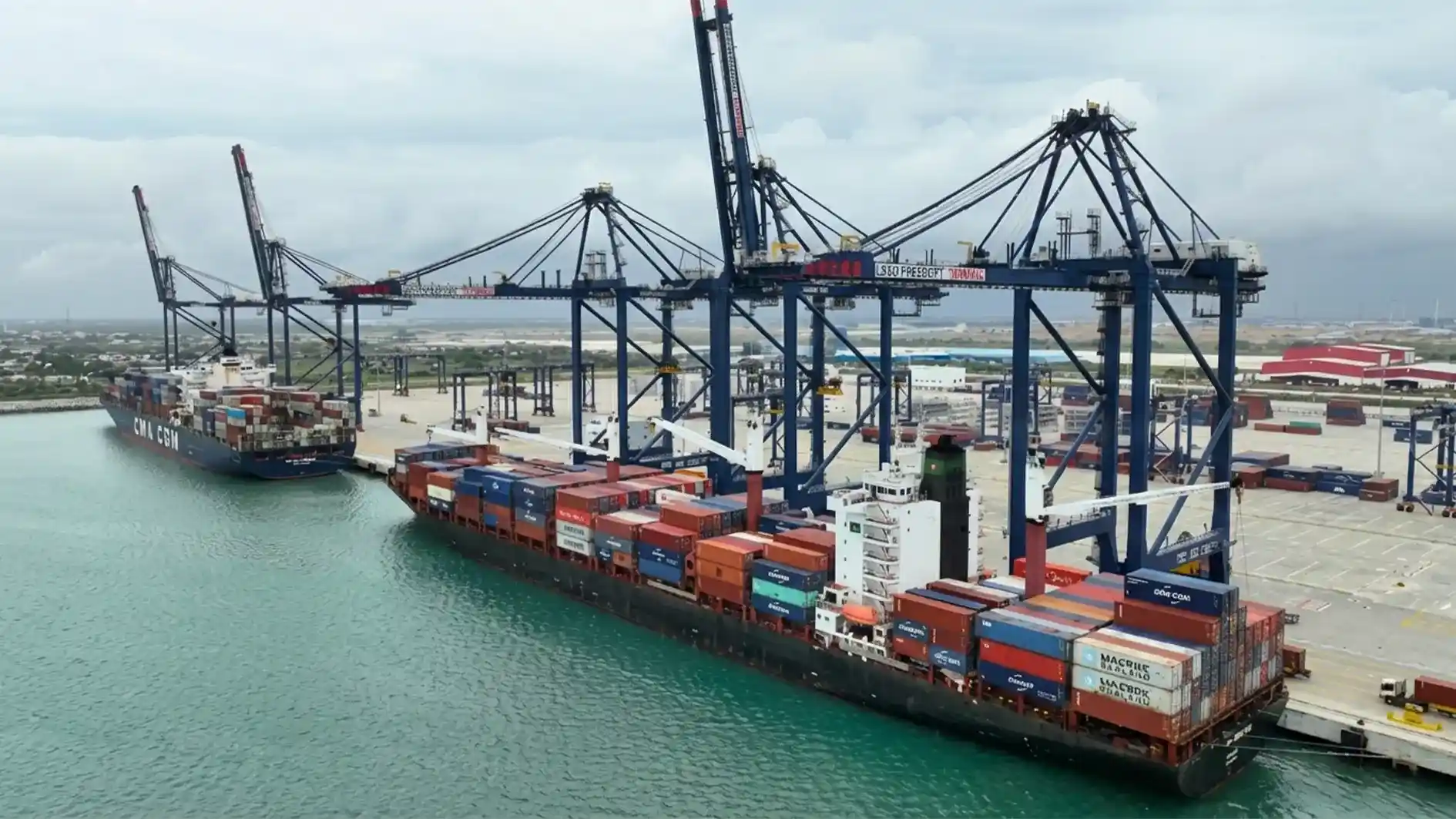The African Continental Free Trade Area (AfCFTA) is widely celebrated as a historic initiative aimed at transforming Africa’s economic landscape by fostering intra-continental trade and economic cooperation. The recent AfCFTA Business Forum, held in Rabat, Morocco, underscores the continent’s determination to harness its vast potential through a unified market and increased regional integration. The forum brought together high-profile leaders, government officials, trade experts, and business representatives from across Africa to discuss pathways for enhancing intra-African trade, removing trade barriers, and solidifying the AfCFTA’s role in creating a thriving and interconnected African market.
The Launch of the AfCFTA Business Forum
Morocco’s Ministry of Industry and Commerce, in collaboration with the Moroccan Confederation of Exporters (ASMEX), organized this inaugural forum under the theme “Intra-African Trade: Perspectives and Opportunities.” This theme resonates with AfCFTA’s objectives, focusing on advancing Africa’s trade potential by overcoming long-standing challenges, such as trade fragmentation and limited infrastructure. Morocco’s Minister of Industry and Commerce, Ryad Mezzour, delivered the opening remarks, emphasizing the importance of AfCFTA in realizing Africa’s potential as a unified economic force. His comments highlighted that Morocco sees the AfCFTA not merely as a trade agreement but as a significant step toward empowering African economies to compete on a global scale.
The Importance of Intra-African Trade
The forum spotlighted the current limitations of intra-African trade, which only accounts for 15% of Africa’s total trade volume—significantly lower than other regions. In contrast, intra-regional trade constitutes more than 60% of total trade in the European Union and approximately 50% in Asia. Omar Hejira, Morocco’s Secretary of State for Foreign Trade, noted that Africa’s vast population of 1.3 billion people presents a massive untapped market for African businesses. Despite this potential, structural and logistical issues—such as limited cross-border infrastructure, tariff and non-tariff barriers, and bureaucratic hurdles—have hindered the growth of intra-African trade.
Support for Small and Medium-Sized Enterprises (SMEs)
SMEs play a critical role in economic growth, employment, and innovation across Africa. However, they often face numerous challenges when it comes to expanding their operations across borders. Hassan Sentissi El Idrissi, the president of ASMEX, pointed out that Moroccan SMEs, like those in many African countries, struggle to penetrate the wider African market. Sentissi emphasized the importance of AfCFTA in providing opportunities for these businesses to access new markets and diversify their clientele. The forum encouraged African nations to prioritize policies and initiatives aimed at supporting SMEs, particularly in areas such as financing, capacity building, and logistics.
Roundtable Discussions and Key Themes
The forum included thematic roundtable discussions that brought together stakeholders to address various aspects of intra-African trade. Topics discussed included South-South cooperation, financing, investment challenges, and sector-specific opportunities. These discussions were pivotal in identifying the sectors where Africa has the greatest potential to boost trade and economic growth, such as agriculture, manufacturing, and technology. The conversations also focused on practical solutions for overcoming trade barriers, including the simplification of customs procedures, the development of efficient payment systems, and the harmonization of regulatory standards across countries.
- South-South Cooperation: South-South cooperation—partnerships among developing countries—is crucial for AfCFTA’s success. By leveraging resources and knowledge across the continent, African countries can enhance their production capabilities, increase efficiency, and reduce dependency on foreign imports. The forum stressed the need for African nations to build closer economic ties, foster joint ventures, and encourage technology sharing to support local industries.
- Investment and Financing: Access to financing remains a major obstacle for African businesses, particularly SMEs. African financial institutions and governments were urged to create more accessible and affordable financing options, especially for cross-border trade. This includes implementing credit facilities, providing export insurance, and encouraging investment from both local and international investors. The African Export-Import Bank (Afreximbank) and other pan-African financial institutions have already shown commitment to supporting AfCFTA by developing products and services tailored to the needs of African exporters and importers.
- Sectoral Opportunities: Identifying sectors where African countries have comparative advantages can help prioritize areas for development and integration. Agriculture, for instance, has enormous potential, given that Africa holds 60% of the world’s uncultivated arable land. Yet, African countries currently import a substantial portion of their food supply. Enhancing agricultural production and trade within the continent could not only improve food security but also generate significant employment and income.
Challenges to Intra-African Trade
While the AfCFTA holds promise, it also faces several challenges that could hinder its progress. African leaders and experts at the forum acknowledged these obstacles and discussed strategies to address them:
- Infrastructure Deficit: Africa’s lack of adequate transportation and logistical infrastructure remains a significant barrier to intra-African trade. Poor road networks, limited rail connectivity, and underdeveloped port facilities increase the cost and time required for cross-border trade. The African Development Bank (AfDB) estimates that Africa needs $130–$170 billion annually to close its infrastructure gap. Addressing this shortfall requires coordinated investments in transport, logistics, and energy infrastructure to facilitate the seamless movement of goods and services across borders.
- Tariff and Non-Tariff Barriers: While the AfCFTA aims to eliminate tariffs on 90% of goods, non-tariff barriers—such as quotas, import licenses, and complex customs procedures—remain a challenge. Harmonizing regulations, simplifying customs procedures, and reducing red tape are essential for creating a favorable environment for intra-African trade.
- Political and Economic Stability: Political instability in some African countries creates uncertainties that deter investment and hinder economic development. In addition, economic policies that are inconsistent or protectionist in nature can undermine regional trade efforts. The forum called for greater cooperation among African nations to ensure political stability and economic reforms that align with AfCFTA’s goals.
Optimizing AfCFTA for a More Integrated Africa
The forum concluded with a series of recommendations aimed at optimizing the AfCFTA framework to promote a more integrated and prosperous Africa. Among the key recommendations were:
- Enhancing Regional Value Chains: Developing regional value chains in sectors such as agriculture, manufacturing, and energy can create employment and add value to African goods. By processing raw materials within the continent rather than exporting them in their raw form, African countries can retain a larger share of the profits generated from their resources.
- Encouraging Digital Transformation: The adoption of digital technologies can play a transformative role in facilitating trade. E-commerce platforms, digital payment systems, and supply chain management tools can make it easier for African businesses to reach new customers and streamline their operations. Digitalization also opens up new opportunities for small businesses, enabling them to participate in cross-border trade without the need for a physical presence in multiple countries.
- Capacity Building and Skills Development: A skilled workforce is essential for a competitive and dynamic economy. To fully benefit from the AfCFTA, African countries need to invest in education and skills development, particularly in fields related to trade, logistics, and technology. Partnerships with educational institutions and international organizations can help bridge the skills gap and ensure that Africa’s workforce is prepared for the demands of a globalized economy.
- Implementing AfCFTA Policies at the National Level: While the AfCFTA provides a broad framework for trade, successful implementation requires the commitment of individual countries. Each nation must align its policies with the goals of the AfCFTA and invest in the necessary infrastructure and regulatory changes. This includes creating incentives for businesses to engage in cross-border trade and ensuring that AfCFTA policies are fully integrated into national development plans.
Looking Forward: The Future of AfCFTA and African Trade
The AfCFTA Business Forum in Morocco marked a significant step in Africa’s journey toward economic integration. By fostering dialogue among leaders and experts, the forum underscored the importance of collaboration in addressing the challenges facing intra-African trade. As African nations continue to implement the AfCFTA framework, the continent stands to benefit from increased economic growth, job creation, and poverty reduction. However, realizing these benefits will require sustained efforts to build a supportive infrastructure, create favorable trade policies, and develop a skilled workforce.
The success of the AfCFTA hinges on Africa’s ability to unite under a common vision and work collectively toward shared economic goals. By addressing the structural barriers that have historically impeded African trade, the AfCFTA has the potential to transform Africa into a competitive and self-sustaining economic powerhouse, benefiting the continent’s 1.3 billion people and paving the way for a brighter future.
Ready to take your career to the next level? Join our dynamic courses: ACCA, HESI A2, and ATI TEAS 7! 🌟 Dive into a world of opportunities and empower yourself for success. Explore more at Serrari Ed and start your exciting journey today! ✨
Photo source: Google
By: Montel Kamau
Serrari Financial Analyst
6th November, 2024
Article, Financial and News Disclaimer
The Value of a Financial Advisor
While this article offers valuable insights, it is essential to recognize that personal finance can be highly complex and unique to each individual. A financial advisor provides professional expertise and personalized guidance to help you make well-informed decisions tailored to your specific circumstances and goals.
Beyond offering knowledge, a financial advisor serves as a trusted partner to help you stay disciplined, avoid common pitfalls, and remain focused on your long-term objectives. Their perspective and experience can complement your own efforts, enhancing your financial well-being and ensuring a more confident approach to managing your finances.
Disclaimer: This article is for informational purposes only and does not constitute financial advice. Readers are encouraged to consult a licensed financial advisor to obtain guidance specific to their financial situation.
Article and News Disclaimer
The information provided on www.serrarigroup.com is for general informational purposes only. While we strive to keep the information up to date and accurate, we make no representations or warranties of any kind, express or implied, about the completeness, accuracy, reliability, suitability, or availability with respect to the website or the information, products, services, or related graphics contained on the website for any purpose. Any reliance you place on such information is therefore strictly at your own risk.
www.serrarigroup.com is not responsible for any errors or omissions, or for the results obtained from the use of this information. All information on the website is provided on an as-is basis, with no guarantee of completeness, accuracy, timeliness, or of the results obtained from the use of this information, and without warranty of any kind, express or implied, including but not limited to warranties of performance, merchantability, and fitness for a particular purpose.
In no event will www.serrarigroup.com be liable to you or anyone else for any decision made or action taken in reliance on the information provided on the website or for any consequential, special, or similar damages, even if advised of the possibility of such damages.
The articles, news, and information presented on www.serrarigroup.com reflect the opinions of the respective authors and contributors and do not necessarily represent the views of the website or its management. Any views or opinions expressed are solely those of the individual authors and do not represent the website's views or opinions as a whole.
The content on www.serrarigroup.com may include links to external websites, which are provided for convenience and informational purposes only. We have no control over the nature, content, and availability of those sites. The inclusion of any links does not necessarily imply a recommendation or endorsement of the views expressed within them.
Every effort is made to keep the website up and running smoothly. However, www.serrarigroup.com takes no responsibility for, and will not be liable for, the website being temporarily unavailable due to technical issues beyond our control.
Please note that laws, regulations, and information can change rapidly, and we advise you to conduct further research and seek professional advice when necessary.
By using www.serrarigroup.com, you agree to this disclaimer and its terms. If you do not agree with this disclaimer, please do not use the website.
www.serrarigroup.com, reserves the right to update, modify, or remove any part of this disclaimer without prior notice. It is your responsibility to review this disclaimer periodically for changes.
Serrari Group 2025
















